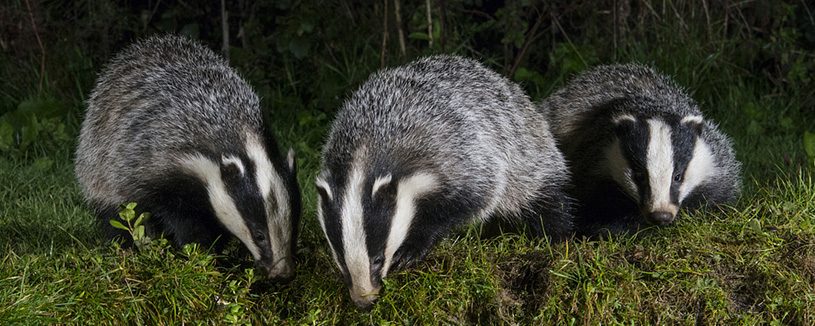A pre-action protocol letter regarding proposals to evolve the badger control policy was sent to Defra on Thursday 16th May following closure of their extended consultation period on plans to continue badger culling using a so-called ‘targeted’ approach.

Badger Crowd has had sight of the letter sent by lawyers to Defra that challenges aspects of the consultation that ran 14th March – 13 May 2024, as unfair. A large number of problems are identified including:
- Misleading and inadequate information regarding badger culling efficacy
- Failure to provide information on ecological impacts of the policy
- No meaningful information on economic impacts of the policy
The action is being taken by conservation ecologist Tom Langton who since 2017 has been given permission for and completed three previous judicial reviews (JR’s) supported by Badger Trusts and Groups, wildlife charities and caring individuals. These JR’s have exposed details of the badger culls that have been vital for public understanding of the rationale behind and operational decisions surrounding badger culling, although only preventing culling in a few nature reserve areas to-date. As a professional scientist and with others, he has published since 2019, details of badger culling efficacy and bovine TB trends in England. One of these publications in particular, Langton, Jones and McGill, March 2022 in Veterinary Record, is directly refuted by two government scientists in the recent consultation, but yet again without any supporting evidence. The Government agency APHA have published a paper in front of the new consultation that is weak; it lacks any comparison between culled and unculled areas and states that there is no way to tell whether badger culling is having an effect on measured levels of disease. Despite this, wording in the abstract of the same paper, both as a preprint and as published, has led the Secretary of State and the Defra Minister to make unsubstantiated claims before (since 2022) and within the consultation, saying that APHA data shows badger culling works. This is a very basic misreading of the available published and peer-reviewed science.
Tom Langton said:
“It is with deep disappointment that Defra forces us back towards the courts to seek redress on the ‘badger control policy’, because the current consultation has created a confusion that surrounds safe and informed consideration of the best course of action for bovine TB control in cattle. Defra has not learnt from mistakes of the past and wants to u-turn the 2020 policy that aimed to phase-out badger culling. It wants to award sweeping powers to the Chief Vet to decide when and where to cull, and how many more dead badgers to add to the 230,000 mostly healthy adults and cubs already killed since 2013. This they achieve by simple misinterpretation of science and by implementing further countrywide operations that are veiled in secrecy.
Much of the confusion and misinformation in the consultation obscured public consideration of critically important matters such as rationale, ecological impacts, economic benefit and animal welfare considerations, to a point where it was simply not fit for purpose. Many of the consultations 19 questions and comment opportunities were likewise cloaked in ambiguity, to the point where response was dependent on assumptions and interpretations, so wide as to make collective and comparative analysis of them meaningless. The consultation options were narrow and miscast, appearing to be aimed at quickly pushing though a single, pre-planned approach to keep on killing badgers. This was a construction by a Ministry desperate to use public funds to support a demand that Defra has itself fostered, by blaming badgers as a key part of bovine TB epidemiology for decades, but based on flimsy evidence. The muddled thinking and bad policy needs to stop right now.
On behalf of badgers, cows and farmers I implore Defra to recognise that this consultation was flawed and should be set aside in favour of more detailed and coherent review of current needs, with new planning towards approaches that can be successful.”
The challenge asks Defra to withdraw its proposals or to reconsult in an adequate way. Meanwhile the request to Defra is that they confirm no decision will be made on consultation responses before the challenge and complaints are fully heard and concluded.

